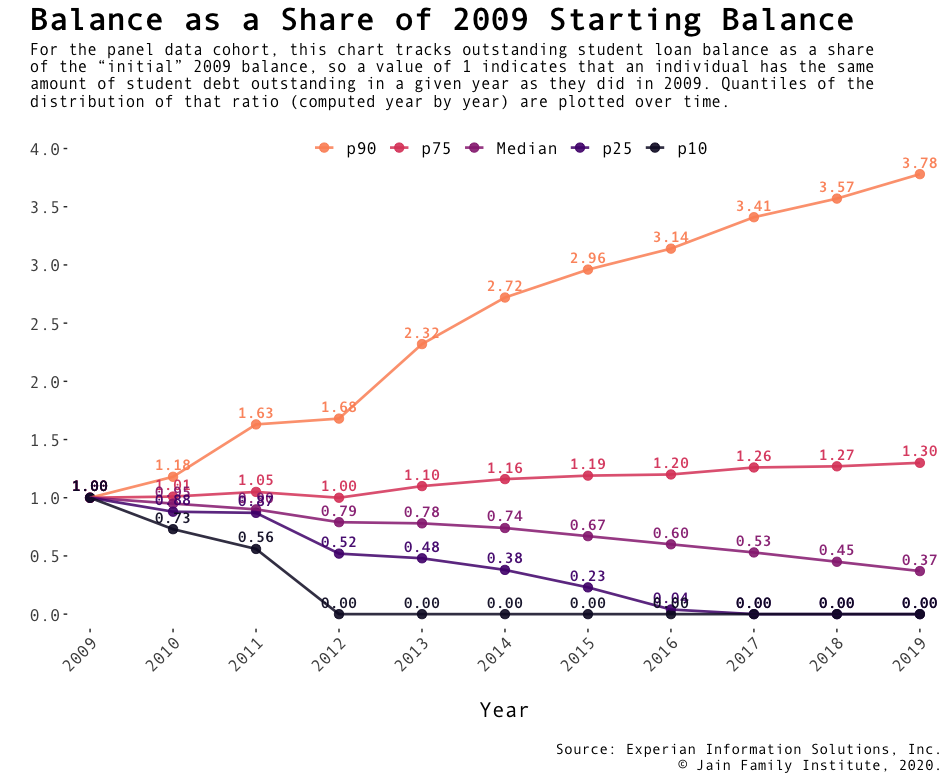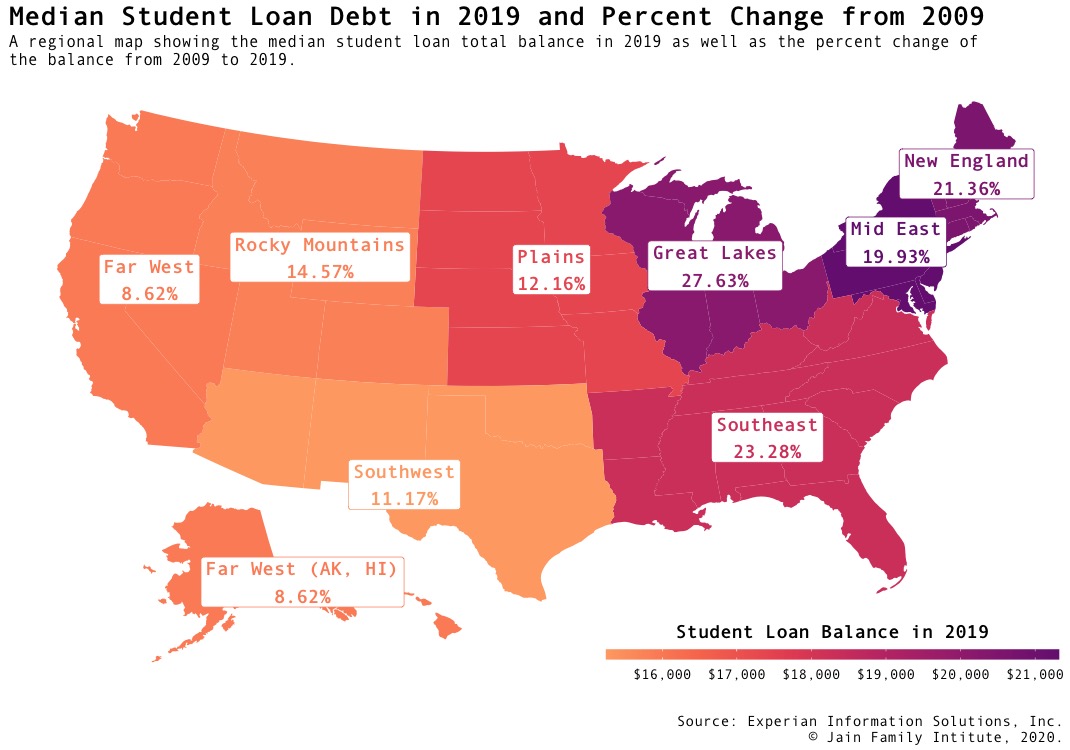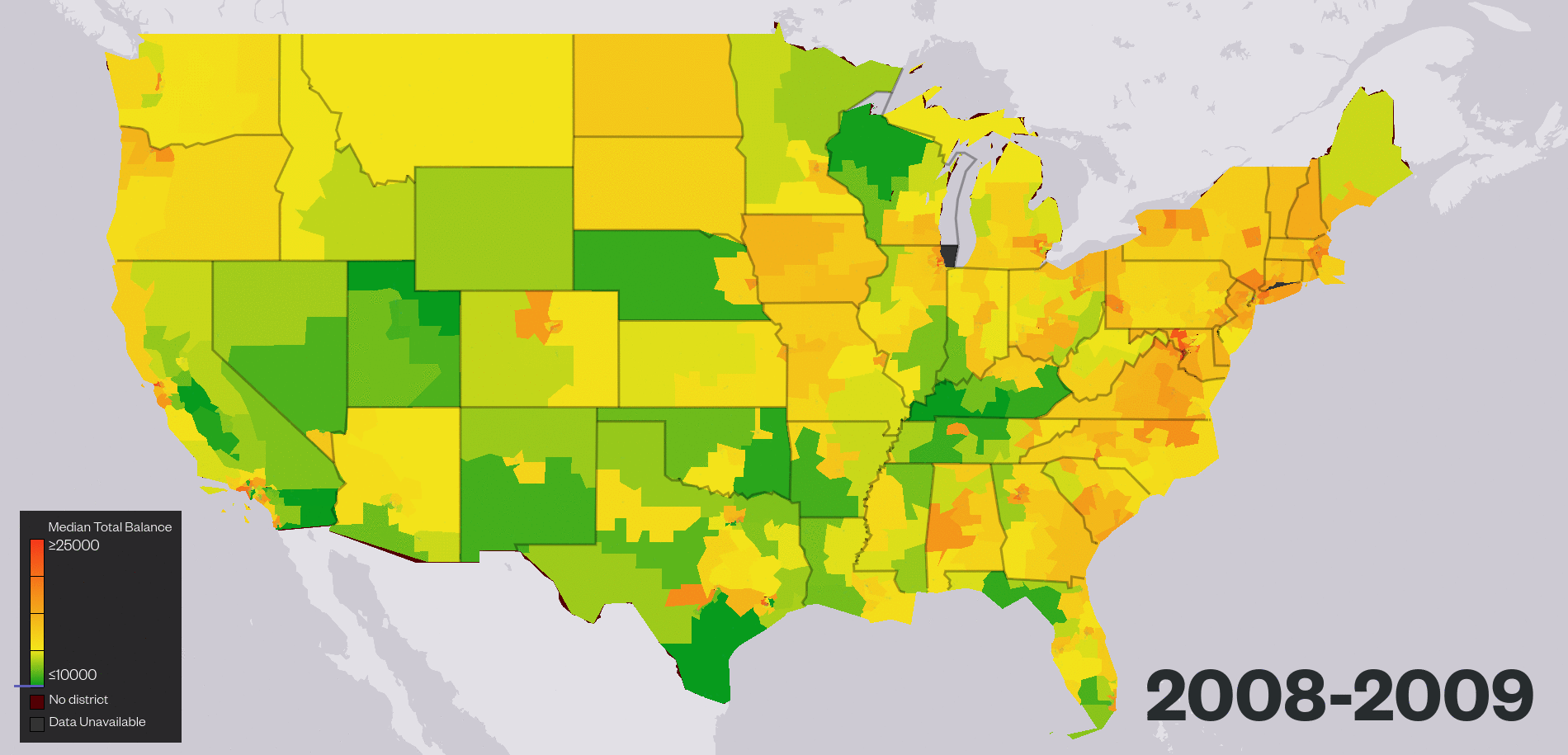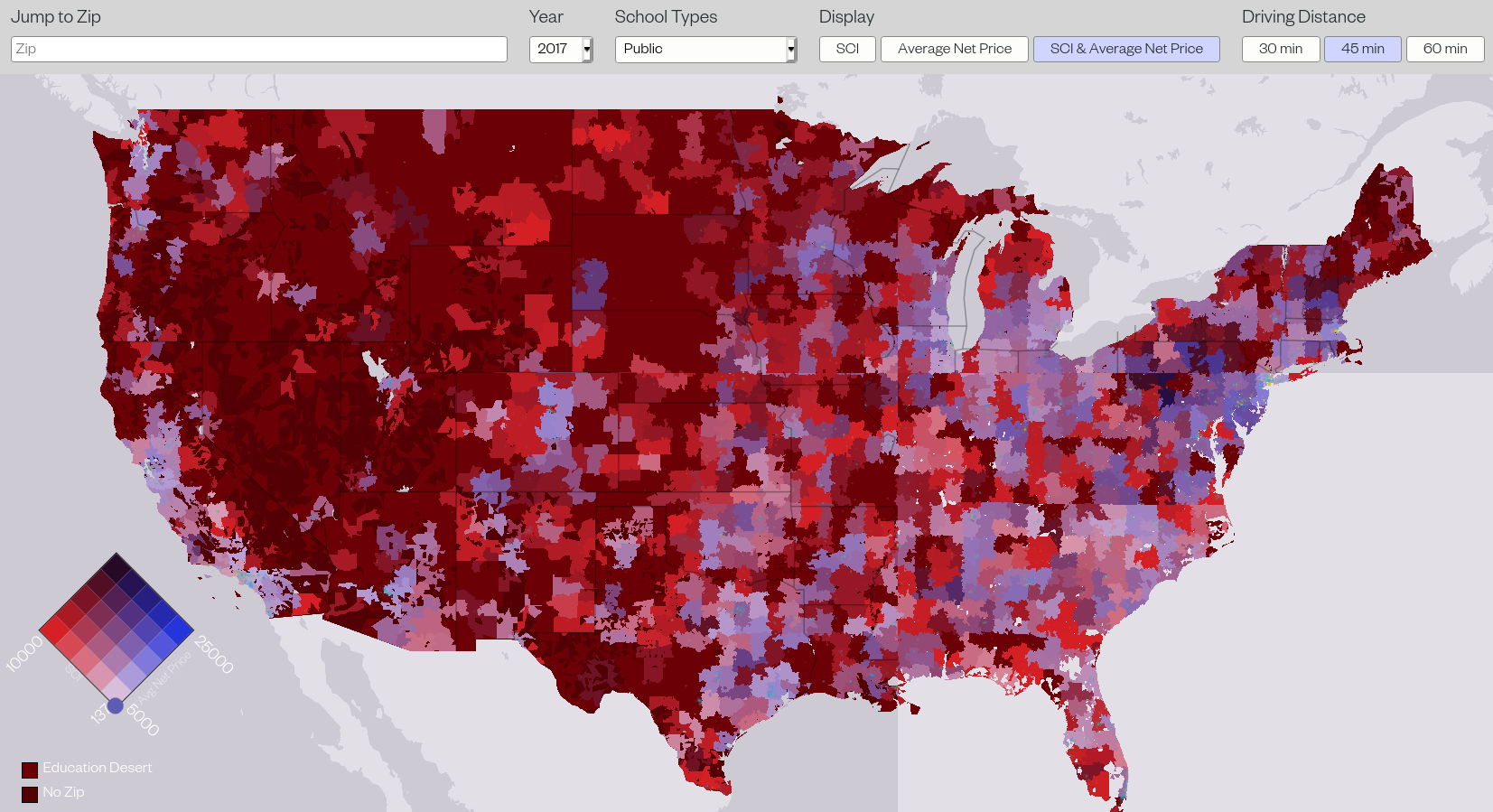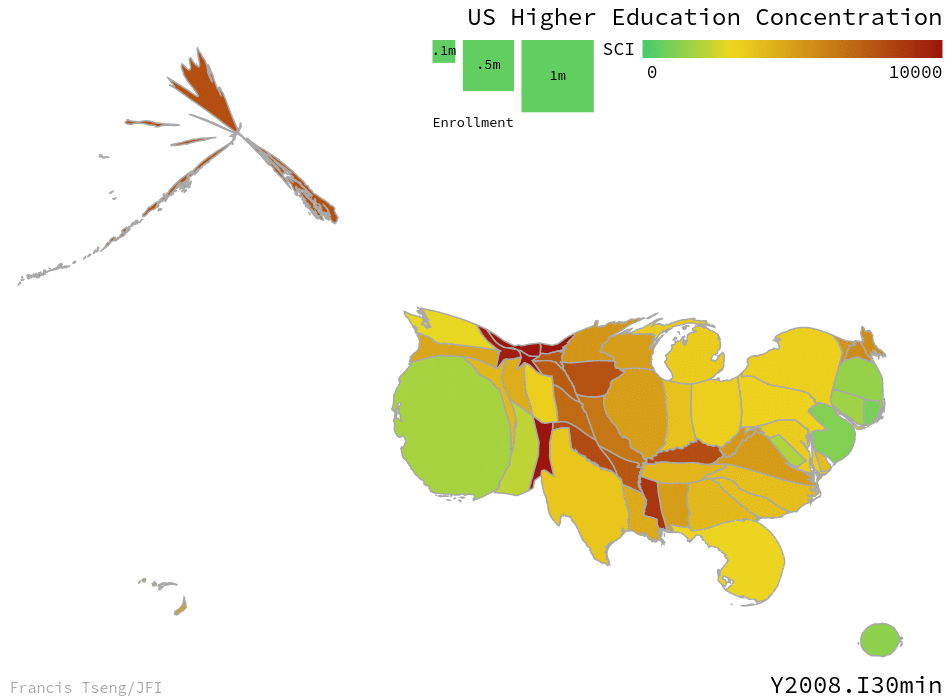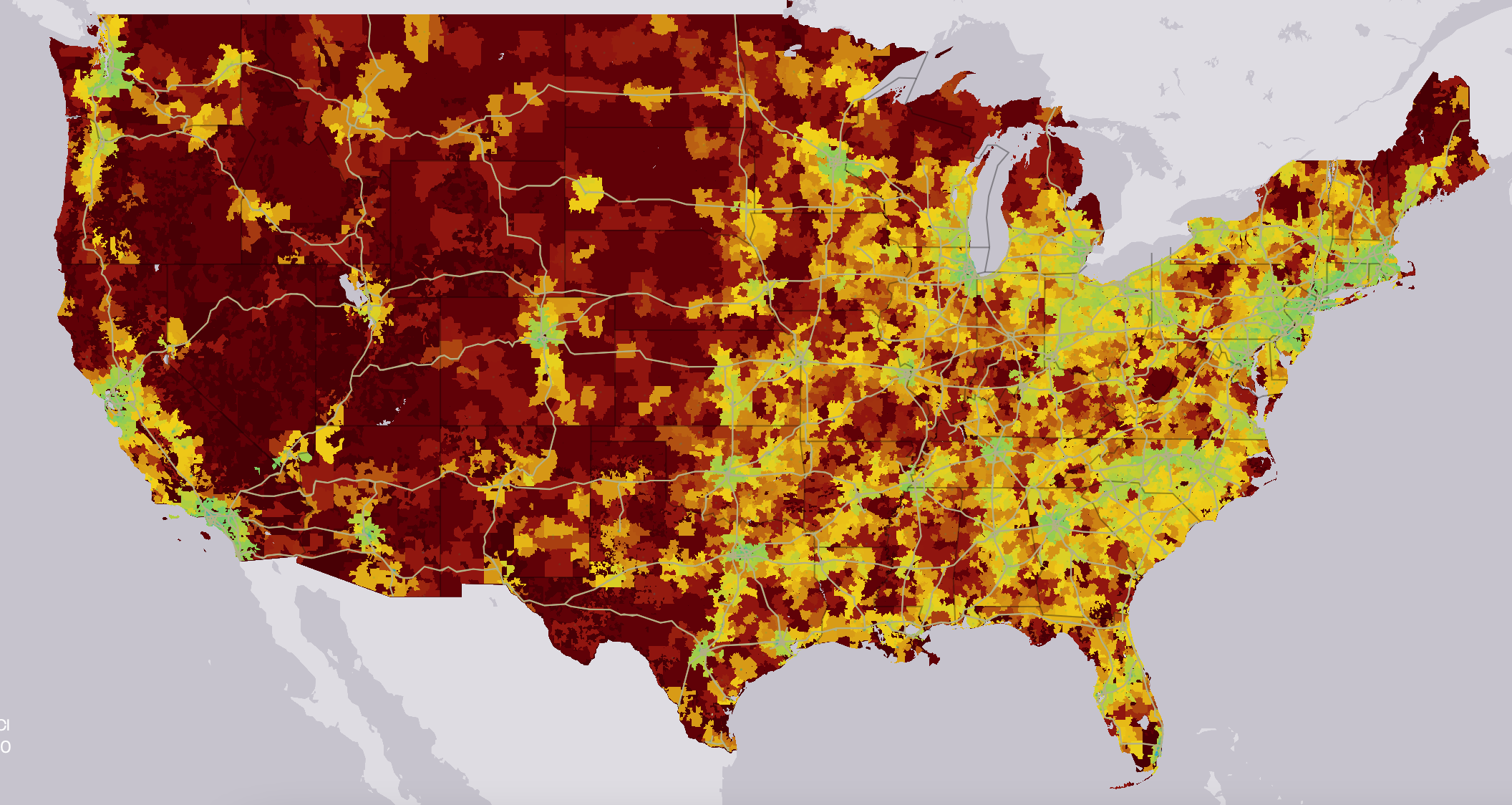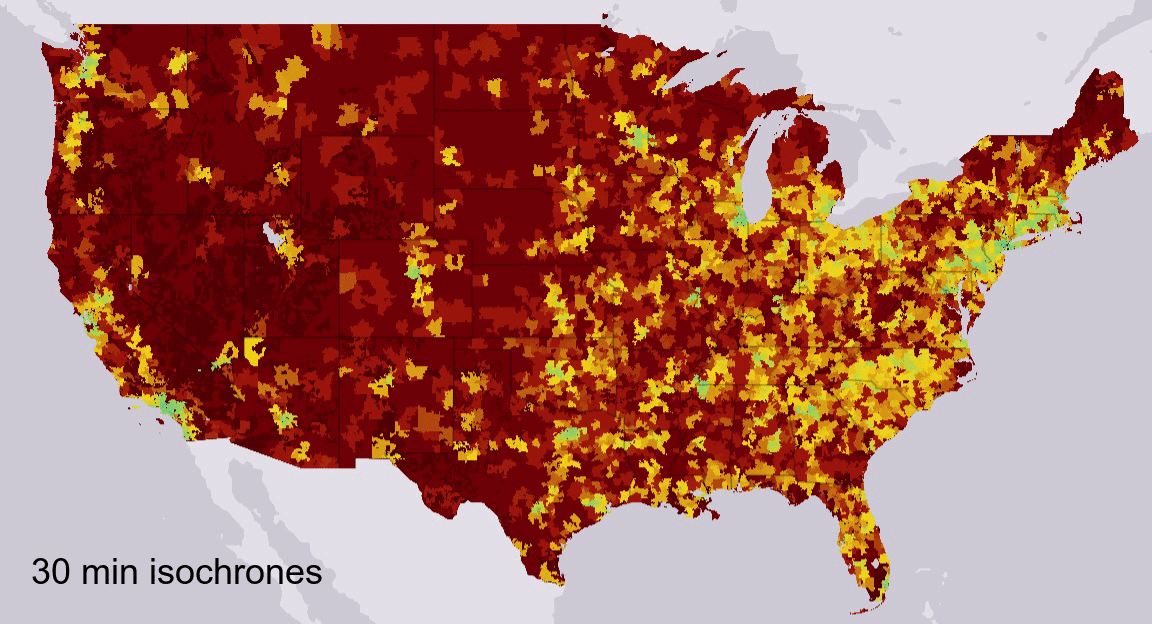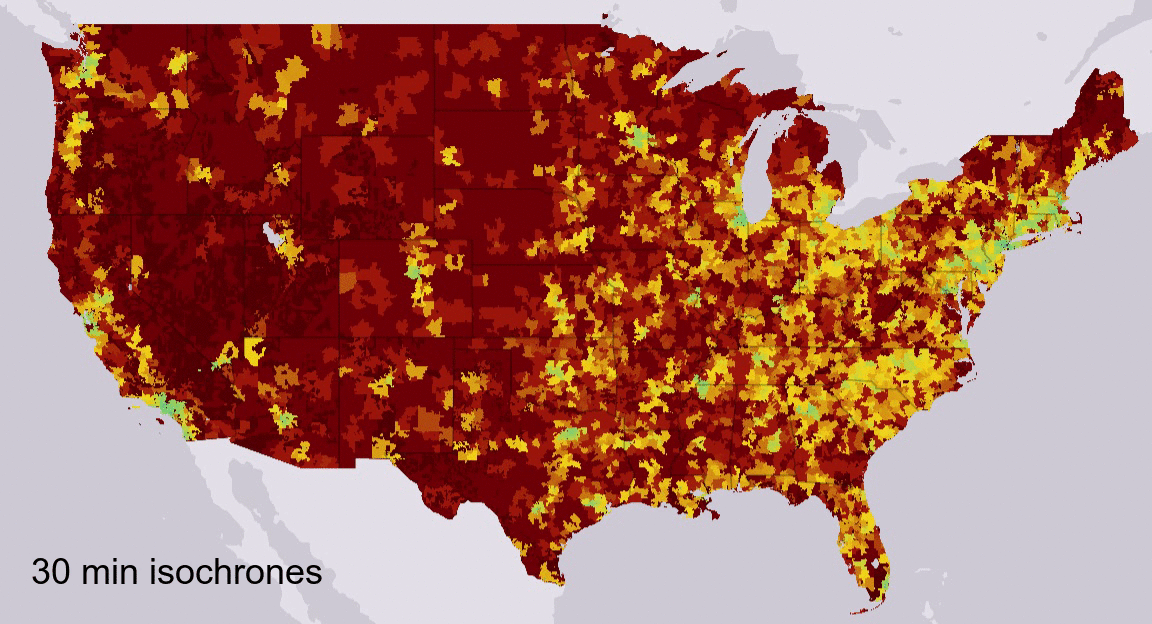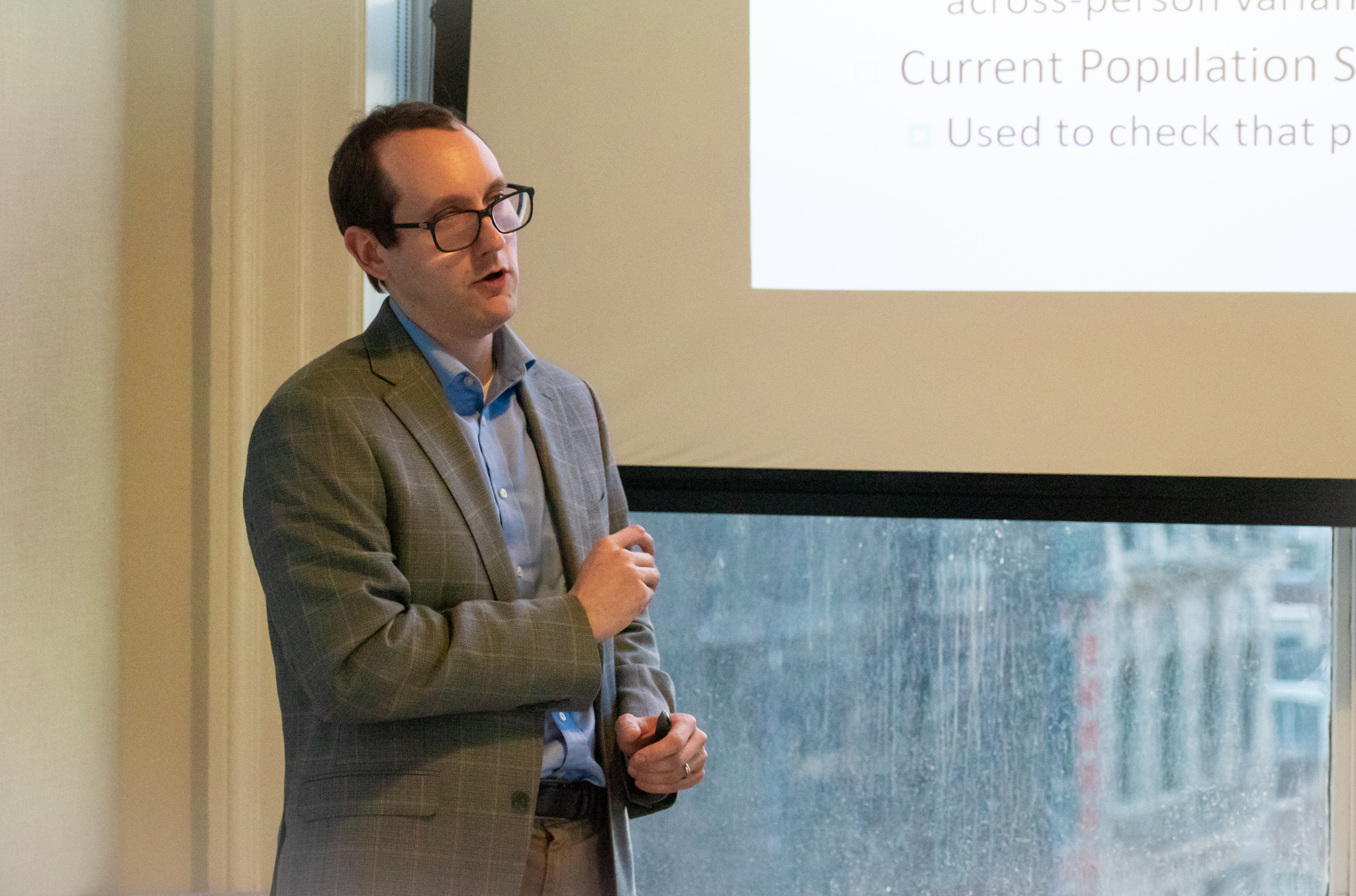Higher Education Finance
The American higher education system is afflicted by a crisis of quality, affordability, and access that belies its role in building an equitable and just society. This has found most pernicious expression in the mounting problem of student debt, a $1.7 trillion burden affecting over 42 million people. This burden often now extends to students’ families, and is disproportionately shouldered by historically marginalized groups. Absent any meaningful constraint on college costs, the student debt trap risks putting higher education – and its promise of economic mobility – out of reach for ordinary and low-income Americans.
JFI approaches the problem of higher education finance in two principal ways: researching the system as it exists, and formulating new mechanisms for financing higher education in the future. We have broken new ground in our analysis of individual- and institution-level datasets, including pioneering work with credit reporting panel data, to offer a detailed picture of student debt, examining race, ethnicity and class intersections, labor markets, intergenerational wealth, and the impact of institution type and geographic concentration. Our findings have highlighted issues with the system for financing higher education well beyond rising tuition, questioning the assumption that student debt “pays for itself” through increased earning power. We have extended the policy picture to cover the problem of labor market credentialization and resulting non-repayment, especially for nontraditional borrowers whose economic life cycles are thereby delayed, as well as institutional segregation in the higher education system. Through this work, we have shined a light on the true long-term costs of a system financed by individual-level student loans.
With this analysis, we aim ultimately to identify high-impact policy interventions to address the existing debt burden and the broader affordability crisis. In an earlier phase of our work, we designed, consulted on, and produced research on income-contingent financing, an alternative to traditional student loans under which students pledge a percent of their income over a limited period.
PARTNER WITH US
We welcome academic and philanthropic partners interested in using our student debt data for collaborative or independent research. We have collaborated with educational institutions, scholarship funds (notably, the Student Freedom Initiative), workforce development agencies, and a range of investors on income contingent finance pilots, and we welcome further inquiries. We also provide analytics, evaluation, and design consulting for existing providers in order to ensure equitable, transparent and accountable financing.
PARTNERS

Featured Partners
Higher Education Finance Contributors

Eduard Nilaj
Senior Research Associate

Ege Aksu
Fellow

Francis Tseng
Lead Developer

Laura Beamer
Lead Researcher

Marshall Steinbaum
Senior Fellow

Roberta Costa
Research Manager

Sérgio Pinto
Fellow

Sultana Fouzia
Research Fellow

Yunjie Xie
Fellow
Related Tools
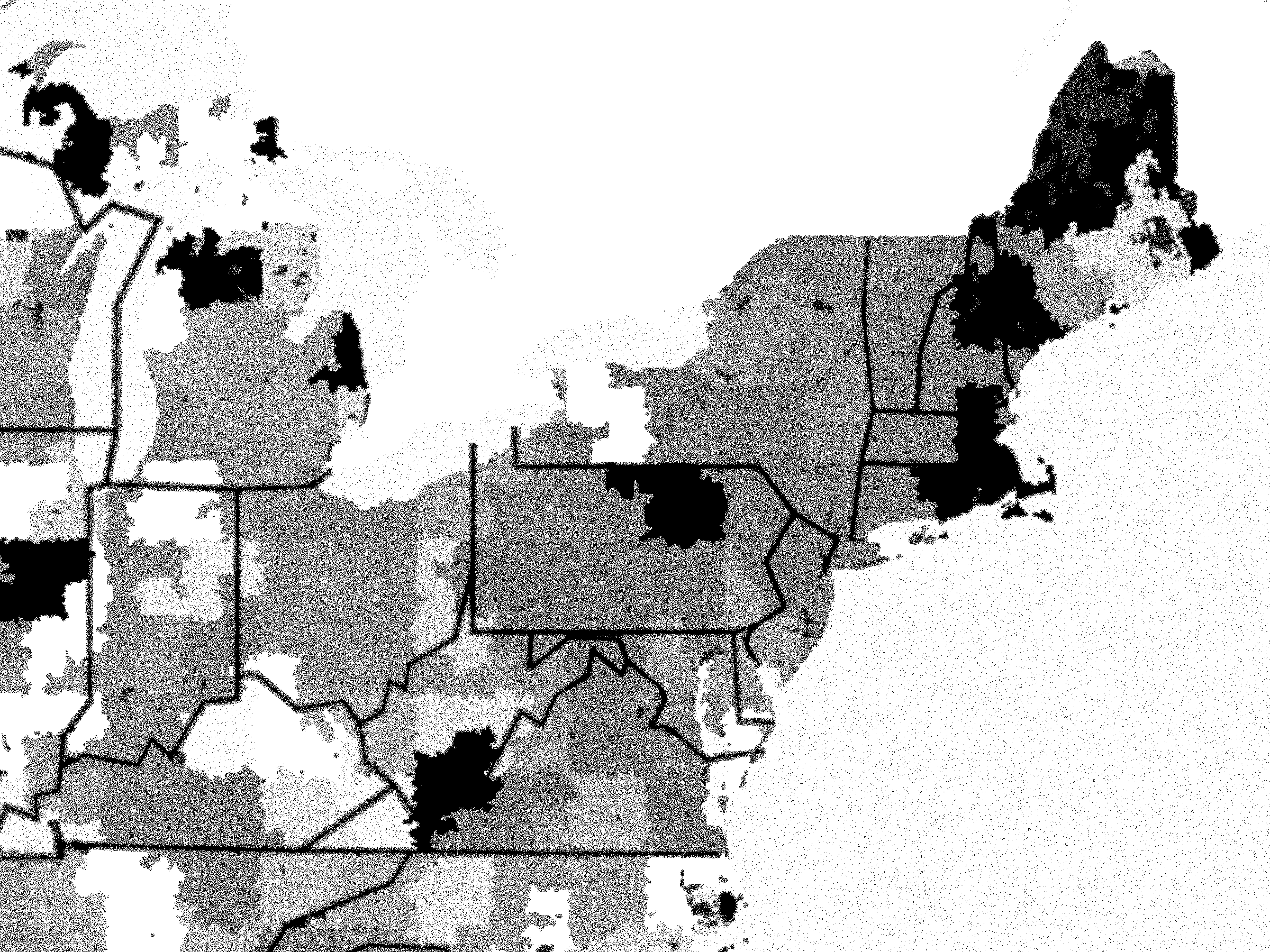 Tooling
Tooling
Mapping Student Debt
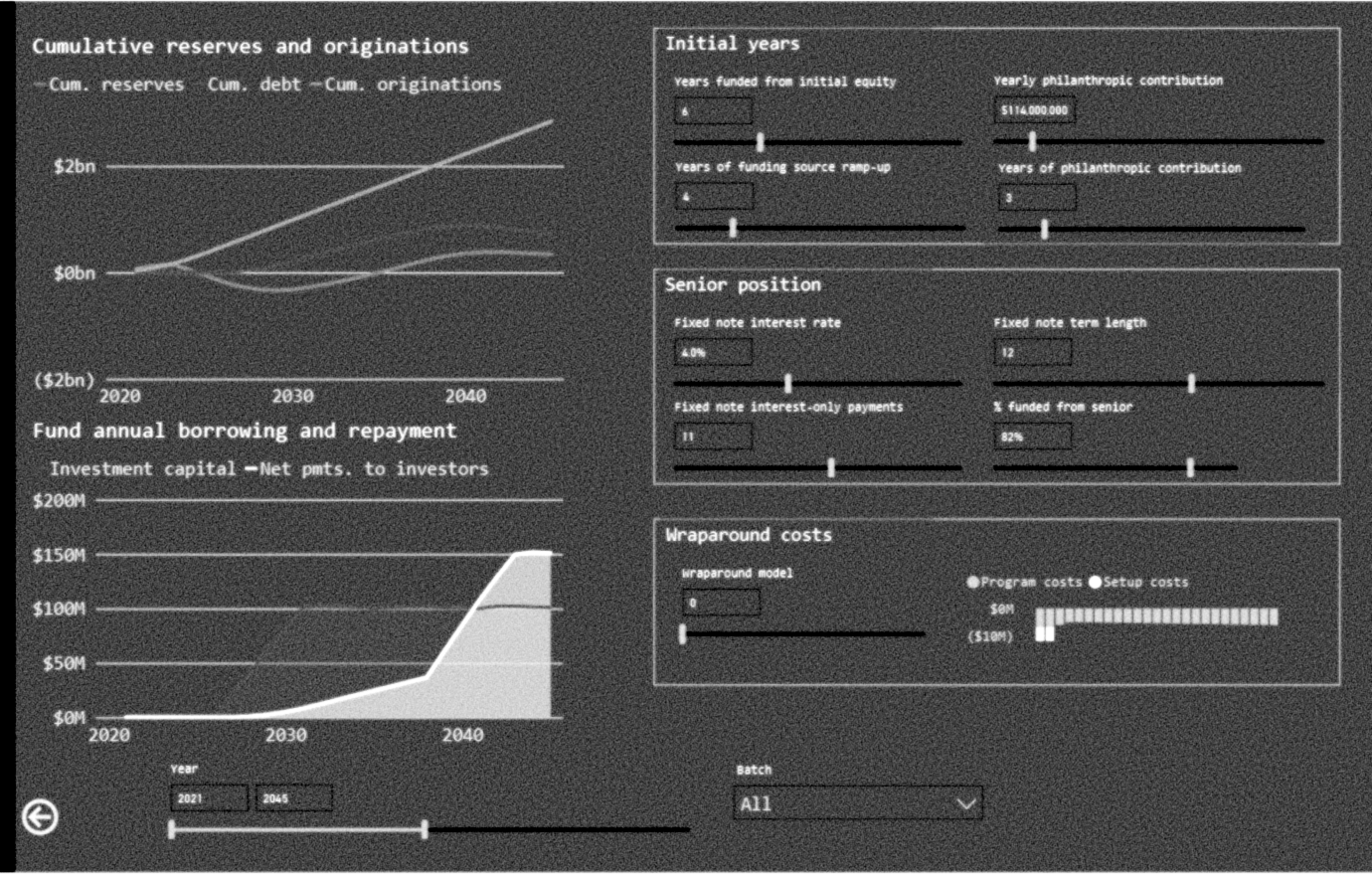 Tooling
Tooling
SFI Model
Related Publication Series
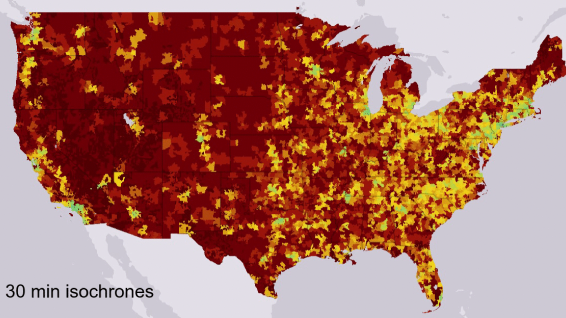
Millennial Student Debt
Recent Updates
Yahoo! Finance features latest Millennial Student Debt report
Senior fellow Marshall Steinbaum's report on the growing burden of student debt forms part of the national conversation on debt...
The Student Debt Crisis Is a Crisis of (Non-)Repayment
Over the last ten years, as outstanding student loan debt has mounted and been assumed by a more diverse, less...
Part of the series Millennial Student Debt
JFI report by senior fellow Marshall Steinbaum examines the crisis of non-repayment of student debt
A new analysis in the Millennial Student Debt series finds that student debt loads are increasingly difficult for students to...
Announcing the Outcomes Center in collaboration with the San Diego Workforce Partnership
The Outcomes Center contains tools and information for workforce income share agreements
JFI student debt research featured in Higher Ed Not Debt campaign
In a week-long virtual action on the Hill for student loan forgiveness, Higher Ed Not Debt coalition members utilized JFI...
Congressional Overlay
An interactive map of congressional-level student debt trends from 2009 to 2019.
Part of the series Millennial Student Debt
JFI releases map of student debt disparities across congressional districts, states
Following last week’s release of student debt trends since 2009, JFI provides a comprehensive tool for congressional advocacy on the...
Yahoo! Finance piece highlights JFI findings on rising student debt burdens
The article discussed Senators Warren and Schumer's resolution for up to $50,000 in federal debt forgiveness amid disproportionate levels of student...
Unceasing Debt, Disparate Burdens: Student Debt and Young America
Since the Great Recession, outstanding student loan debt in the United States has increased by 122% in 2019 dollars, reaching the staggering...
Part of the series Millennial Student Debt
JFI report shows dramatic increases in millennial student debt, interactive map of disparate impacts
New data shows fewer options, higher prices, and ballooning debt in higher education since 2009, with lowest-income communities of color hit...
Policy Insights: ‘Legislating Relief’ – expert perspectives on higher education bills
Key takeaways of our August 7th panel with policy and research experts in higher education, providing crucial perspectives for the...
Declining Access, Rising Cost: The Geography of Higher Education Post-2008
Our goal in this study is to help policymakers understand the changing landscape of US higher education since 2008, and to...
Part of the series Millennial Student Debt
Time Magazine covers Robert Smith’s Student Freedom Initiative in partnership with JFI
The multi-billion dollar non-profit fund creates alternative financing options at HBCUs, with JFI partnering on program design, analytics, & research
Announcement and Summary: Declining Access, Rising Cost: The Geography of Higher Education Post-2008
A new report on the Phenomenal World and interactive map displaying the price of college throughout the US
Press Release: Announcing a Partnership between Robert Smith’s Student Freedom Initiative and the Jain Family Institute
JFI will offer design and analytics for Robert Smith’s major new nonprofit fund for historically Black colleges and universities
Yahoo! Finance features JFI higher ed access research
Laura Beamer, Lead Researcher on Higher Ed Finance, speaks with Yahoo! Finance on the findings of our first report on...
Press Release: Income Share Agreements – New Partnership
Outcome and JFI form an exclusive partnership to spearhead a new phase of growth for the income share agreement market...
USA Today covers JFI “Geography of Higher Ed” research
JFI Project Lead on Higher Ed, Laura Beamer, comments on higher education desserts and our newest research findings in USA...
Education Dive features JFI higher ed access research
More coverage of our recently-released research on "The Geography of Higher Ed" by Education Dive, with commentary on free-college proposals,...
Inside Higher Ed features JFI research on higher ed access
Higher Ed Finance Project Lead Laura Beamer and Senior Fellow Marshall Steinbaum speak with Inside Higher Ed on the implications...
Unequal and Uneven: The Geography of Higher Education Access
Previous research on the geography of higher ed has simply reported the number of institutions in a given area. But...
Part of the series Millennial Student Debt
Press Release: Higher education concentration – new study and interactive map
A new interactive map shows U.S. higher education access, including enrollment, concentration, and schools by ZIP code, and indicates...
New Research: The Geography of Higher Education Access
Preliminary results from JFI's ongoing study of access to higher education in the US.
Doug Webber
Doug Webber, Associate Professor of Economics at Temple University, joined us for a JFI Research Session to share the results...


